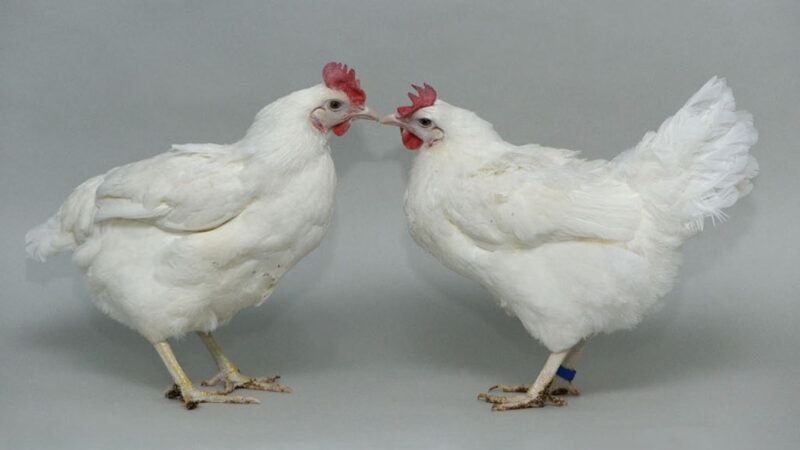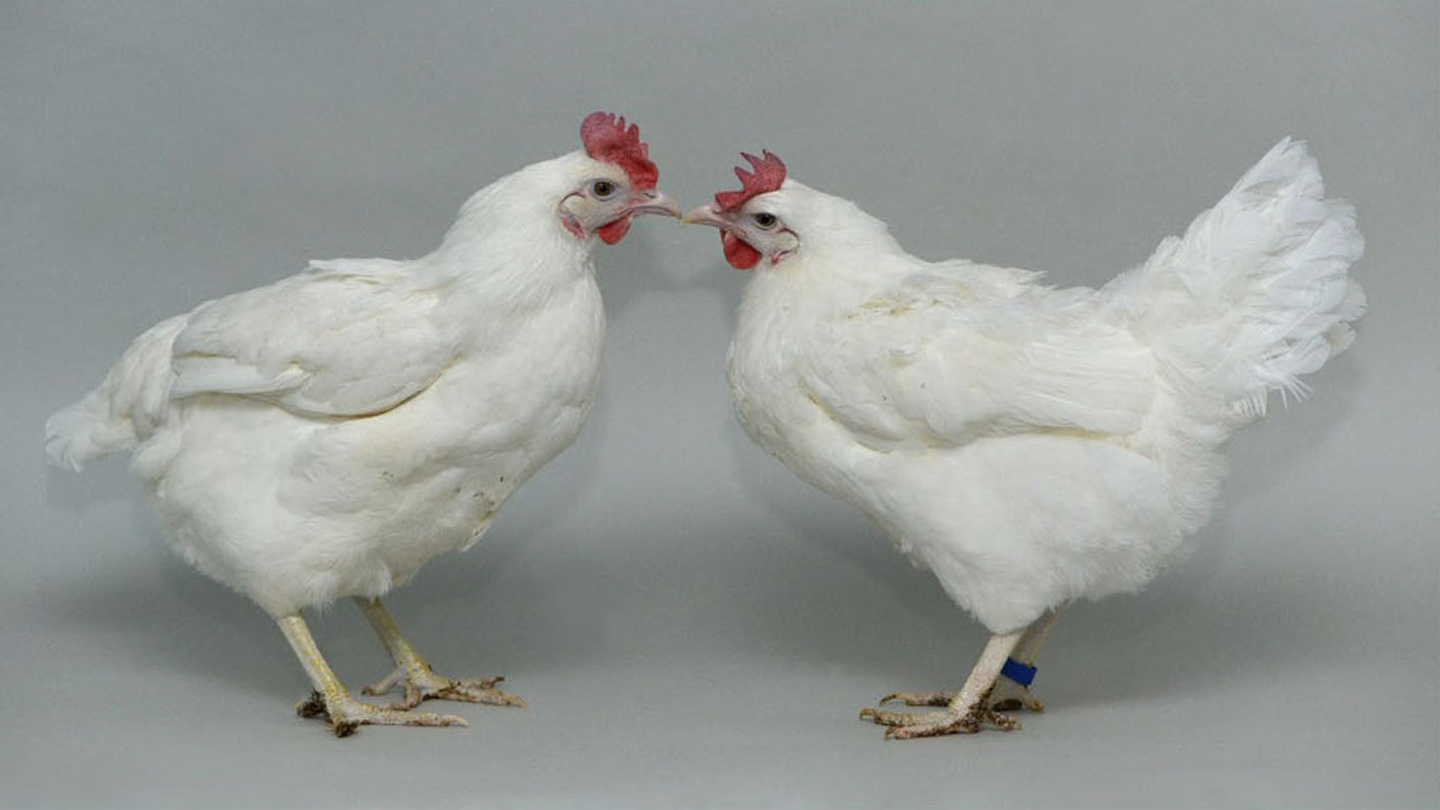
Chickens genetically modified to be impervious to bird flu may one day prevent the spread of the disease on farms, a study suggests.
Just small tweaks to a single gene made chickens resistant to an avian influenza infection, researchers report October 10 in Nature Communications.
The gene, known as ANP32A, provides the instructions that tell chicken cells how to make a protein that flu viruses rely on to successfully hijack cells. Disrupting the avian virus’s ability to commandeer the protein stopped most genetically edited birds from getting infected.
Testing the gene editing in such a ubiquitous agricultural animal that’s susceptible to bird flu makes the new study “especially impactful and important,” says Jacob Yount, a viral immunologist at Ohio State University in Columbus who wasn’t involved in the research.
The virus can rapidly spread among birds on poultry farms, sometimes with devastating consequences. Beginning in 2022, an outbreak hit the global poultry industry hard, pushing farmers to cull millions of birds in the United States alone. After a summer lull, on October 4, a turkey farm in South Dakota confirmed the first case on a U.S. poultry farm since April, affecting around 47,300 birds.
While many avian flu strains cause only mild illness in birds, such deadly strains like the one behind the global outbreak can kill domesticated and wild birds (SN: 3/6/23). Chickens also occasionally transmit flu to farm animals like pigs or, less often, people.
Ideally genetic editing would completely stop the virus from replicating inside the animals, so it can’t pose a risk to birds, or people, at all. But in the new study, some edited chickens still got infected, meaning the technique isn’t yet 100 percent effective.
The new research “isn’t all the way there yet, but I think it’s an amazing first step and an amazing proof of concept,” Yount says.
Vaccines to defend poultry from flu exist, but the tactic is expensive, and the virus swiftly adapts to evade that protection, developmental biologist Mike McGrew of the University of Edinburgh said in an October 5 news conference. Gene editing, on the other hand, offers a way to make permanent changes that leave an animal resistant to a particular disease.
ANP32A is a good gene to tweak in chickens because it’s “absolutely essential” for the virus’s replication, virologist Wendy Barclay of Imperial College London said at the news conference.
In the study, Barclay, McGrew and colleagues made two changes to ANP32A using the molecular scissors CRISPR/Cas9, so that the gene’s protein could no longer interact with avian flu viruses. After monitoring the birds for two years, the edited chickens were healthy, and hens laid eggs normally just like unedited birds, genetic engineer Alewo Idoko-Akoh of the University of Bristol in England said at the news conference.
The team then placed 10 normal and 10 gene-edited chicks in separate incubators and exposed them to a dose of around 1,000 infectious particles of avian influenza directly in the nasal cavity. The strain was one that could infect the birds but not make them severely ill. A day later, the two groups of 2-week-old chicks were then each joined by 10 unexposed peers, called sentinels. The unedited birds were paired with unedited sentinels, and gene-edited birds were paired with gene-edited sentinels.
All 10 unedited chickens got infected and had high levels of virus in their bodies, and so did seven of their sentinels. Only one of the gene-edited birds contracted the virus.
That infected modified bird had low levels of virus, and it didn’t transmit the virus to any of the edited sentinels. But “we felt that it would be the responsible thing to be more rigorous, to stress test this and ask, are these chickens truly resistant?” Barclay said.
So the researchers repeated the experiment, exposing chickens to 1,000 times as much virus as before, about 1 million infectious particles — an abnormally high dose that contains more virus than the birds would likely be exposed to on poultry farms. The team also mixed in both unedited and edited sentinels with exposed chickens.
In one incubator, all the normal chickens got infected and transmitted the virus to every unedited sentinel. No edited sentinel birds in that incubator caught the flu. In the other incubator, five of 10 modified chickens became infected after exposure, transmitting the virus to one unedited sentinel but no edited ones. That suggests that even though the virus could infect chicks at high doses, the animals weren’t very contagious.
Viruses from the gene-edited chickens that got infected had adapted in ways that allowed the viruses to ditch their reliance on the ANP32A protein and instead co-opt two other proteins in the same family to replicate. That means editing more than one gene may be necessary to make chickens fully resistant to flu.
“If this was a disease that only infected chickens, then the resistance that we created would be better than what we would get with a vaccine,” McGrew said. “But because this is a zoonotic disease and can be spread potentially to humans, we really need to aim for complete resistance.”
Eliminating all three ANP32 genes from chicken cells grown in a lab dish stopped the virus from replicating at all. But because having at least some ANP32 proteins may be important for developing chick brains, bones and hearts, that strategy might cause problems for live chickens. More work is needed to figure out if that is true, Yount says, and whether other genes outside of the ANP32 family might also be good candidates for editing.
The use of genetically modified organisms in agriculture is not without controversy (SN: 1/29/16). But it’s important to continue such work in chickens, Idoko-Akoh said, “so that then when maybe it becomes widely or more culturally accepted, we can take advantage of the technology.”
For all the latest Science News Click Here
For the latest news and updates, follow us on Google News.

